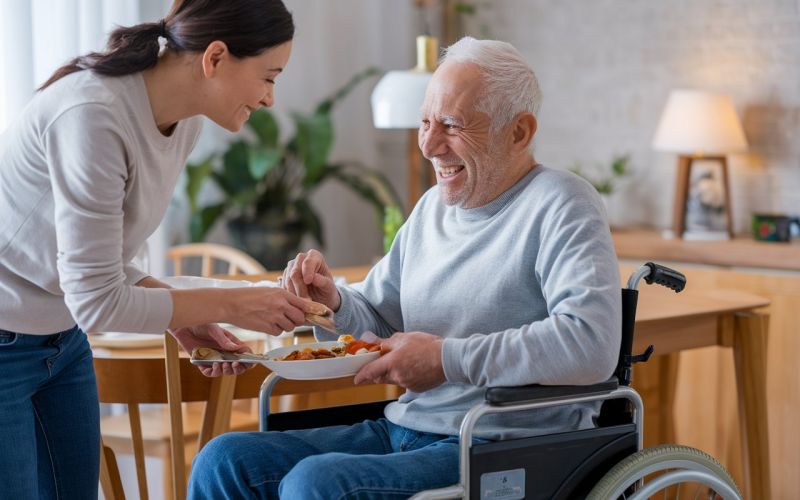Dementia and Incontinence: It Is Not Just About Loss of Control
iSavta | 16.11.2020
Incontinence or the loss of bladder or bowel control in Dementia patients is not just about the loss of control. As caregivers, there are ways that we can help manage incontinence as well as understand what causes these in the senior adults that we care for. It is best that you know how to help them when it happens and help them retain their sense of dignity.

Best Ways to Manage Incontinence in Dementia Patients
- Communicate your support to the person by reducing feelings of embarrassment. Again, as a caregiver, you are there to find ways to retain their dignity. Use positive words as “Anyone can have an accident like this” instead of degrading them in front of other people.
- Tell your patient not to stop drinking or withhold fluids. Spread out their 6-8 glasses of water throughout the day so you can also manage their urination.
- Encourage your senior patient to tell you right away if they need assistance in using the toilet.
- Try to be observant of the non-verbal cues of the one you are caring for. If they are acting restless or making unusual faces or any other out of the ordinary. They might need to use the toilet.
- Communication challenges might mean they cannot relay to you their needs. But look for phrases or words that might mean they need to go to the bathroom. In the later stage of Dementia, more communication issues may arise.
- Reminding them that they need to go to the bathroom might also help them remember. As a caregiver, you can have a regular schedule to remind them to do it. This will help them relieve themselves without the worry or fear of doing it unexpectedly.
- At home, make sure it is easy for them to find the toilet. Keep the floor clutter-free and remove all tripping hazards. You can also keep the bathroom door and light open so they can find the toilet right away.
- Keep the toilet safe by installing grab bars, using good lighting, and anti-slip mats.
- For Dementia patients with mobility loss, talk to them about the use of a portable urinal for the bedroom. It will be accessible to them during nighttime.
- Choose clothing that will be easier for them to remove. Consider pants with garter than button-fly pants that are quite difficult to unfasten when they need to go.
Causes of Incontinence in Dementia Patients
Dementia patients’ main problem is that they might forget to do things. One of which is that they may have forgotten to recognize the urge to go to the bathroom and what to do with that urge. They may also not recognize the bathroom or may forget where the bathroom is.
The loss of mobility or having problems thereof can also have problems with getting to the toilet in time. Some may have communication issues. Some might have medical conditions like urinary tract infection (UTI), prostate problems, diabetes, Parkinson’s disease, or other physical disabilities.
To close, there are so many ways that you can help your senior patient achieve the best quality of life they can have even with Dementia. By helping them manage their incontinence, you can also help them enjoy their life better.












